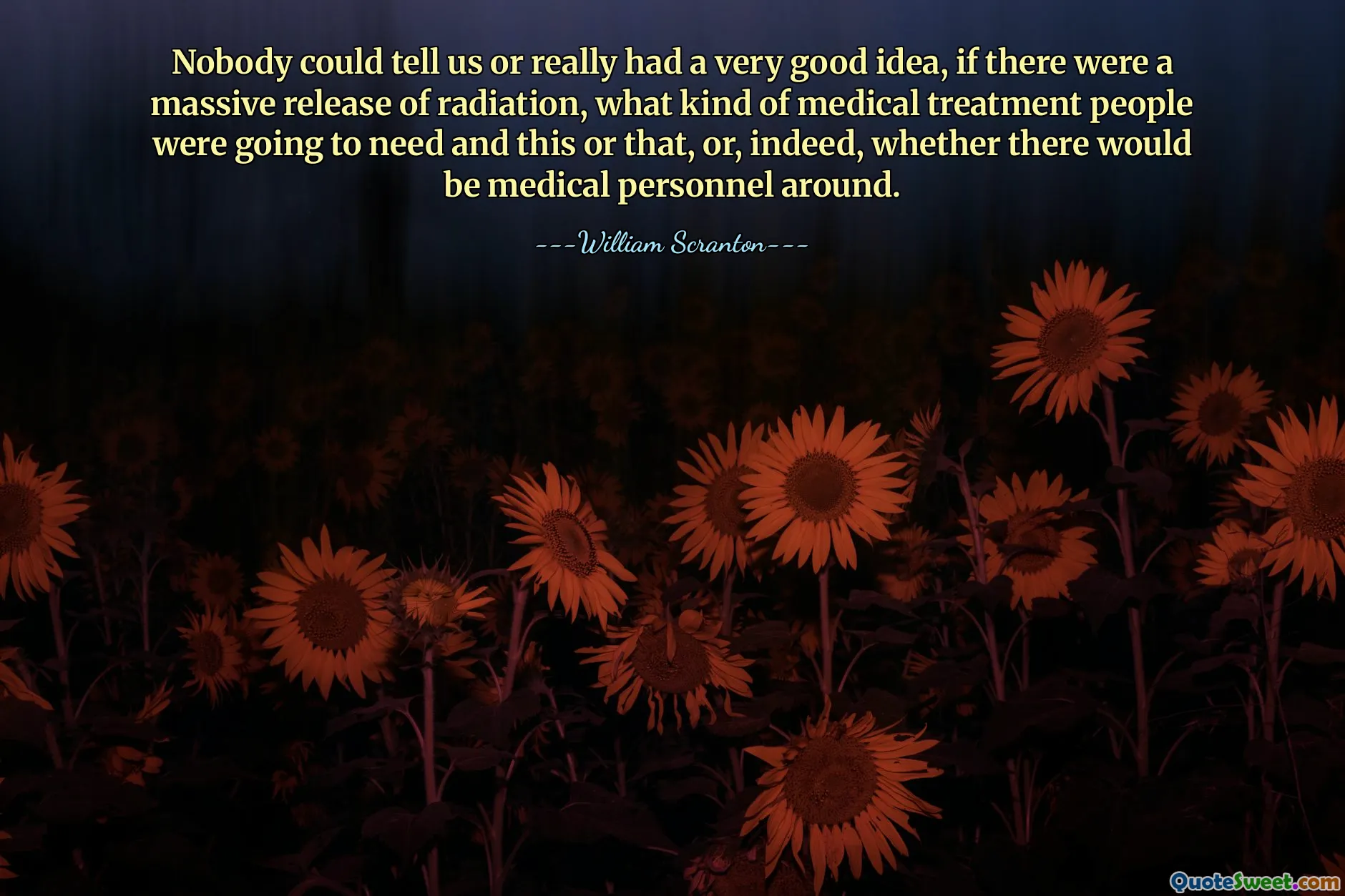
Nobody could tell us or really had a very good idea, if there were a massive release of radiation, what kind of medical treatment people were going to need and this or that, or, indeed, whether there would be medical personnel around.
This quote highlights a profound challenge common in crisis management: the uncertainty and lack of preparedness when facing catastrophic events such as a major radiation release. It underscores the difficulties officials and healthcare providers face when potential disaster scenarios surpass existing knowledge and resources. The ambiguity about medical treatments necessary and the availability of medical personnel reveals how unprepared systems can be for unpredictable crises, emphasizing the importance of preparedness and contingency planning.
In real-world scenarios, the unpredictability of biological and physical effects from radiation exposure complicates response efforts. Without accurate forecasts or historical data, medical teams may find themselves ill-equipped, unsure of treatment protocols, and lacking crucial information on resource allocation. Additionally, the quote hints at the broader systemic issues related to communication and resource mobilization during emergencies.
From an ethical perspective, this uncertainty can lead to significant stress among healthcare providers, potentially impacting their decision-making and morale. It also stresses the crucial need for comprehensive response plans including training, stockpiling vital supplies, and establishing communication channels with qualified personnel. Moreover, the quote implies a need for continuous research and simulation exercises that prepare society for unforeseen disasters.
Ultimately, this reflection reminds us of the importance of resilience-building within healthcare and emergency systems. We must invest in scientific advancements, logistical planning, and international cooperation to better anticipate and manage such crises. Preparing thoroughly today can mitigate chaos and suffering tomorrow, transforming our approach from reactive to proactive in facing potential nuclear or radiological emergencies.









